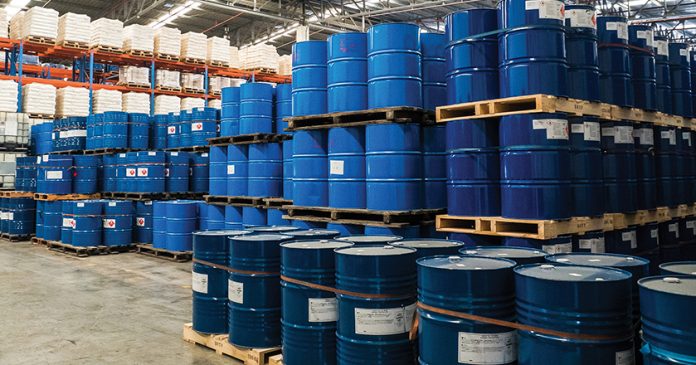As businesses try as best they can to prepare for the potential consequences of Brexit, some are stockpiling supplies to understandably try to mitigate the impact of delays as a result of increased border checks.
However, it’s important that businesses ensure that their insurance programme is keeping pace with any changes to stock sums insured by keeping in touch with their brokers.
The volatility around Brexit means that stock values can increase as the cost of replacement materials & products increase even without volumes changing, so it’s good practice to ensure you’re aware of how your actual stockholding exposure might differ from the amounts you’re insured for.
Some policies automatically include a buffer for such eventualities (and the Policies we provide via Pen Hazardous Goods & Environmental include a stock fluctuation clause that protects you against volatile pricing for an event like Brexit up to a maximum of 15% as standard) but even then, it’s wise to double check.
Other factors to consider are where you might store this extra stock. If you’re using third party premises (even if it’s a neighbouring property on the same estate) then your insurers might not provide indemnity in the event of your stock being stolen or damaged.
Stock kept in the open is often also excluded (or cover is limited) so again, it’s worth checking with your brokers as to what you’re covered for.
Similarly, if you’re keeping stock in open-sided buildings, or buildings of non-standard construction, then there might be issues with indemnity, so it’s prudent to get clarity.
Some policies also have conditions around how close stock can be kept to buildings, so in the event of a fire, you might be covered for either the stock or your buildings, so again, get some unambiguous guidance from your brokers and/or insurers.
Changes to storage processes can also lead to new risks being created – both from a site safety perspective (unsecured drums double-stacked on pallets to maximise storage on a limited footprint) and an operational perspective (products stored in locations where employees are used to different products being kept there), so any potential changes to your storage processes should be assessed prior to implementation, and those changes communicated clearly to staff.
The latter really can go badly wrong – a recent incident occurred following some changes on site, where an IBC containing acid was stored in an area where alkali products were usually kept; the wrong chemical was used and the resulting chlorine gas cloud damaged both the site and neighbouring property, and costs are likely to be in excess of £500,000.
On top of all of this, as a company director, you could be pursued by the HSE if any incidents cause injury as a result of insufficient planning, and if that happens, even the best insurance policy can’t stop imprisonment.
www.oamps.co.uk
This information is not intended to constitute any form of opinion or specific guidance and recipients should not infer any opinion or specific guidance from its content. Recipients should not rely exclusively on the information contained in the bulletin and should make decisions based on a full consideration of all available information. We make no warranties, express or implied, as to the accuracy, reliability or correctness of the information provided. We and our officers, employees or agents shall not be responsible for any loss whatsoever arising from the recipient’s reliance upon any information we provide and exclude liability for the statistical content to fullest extent permitted by law.










